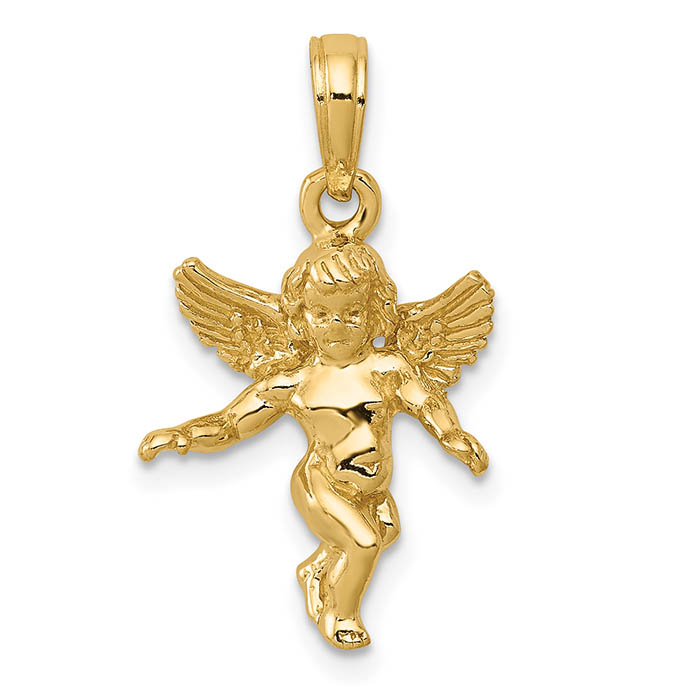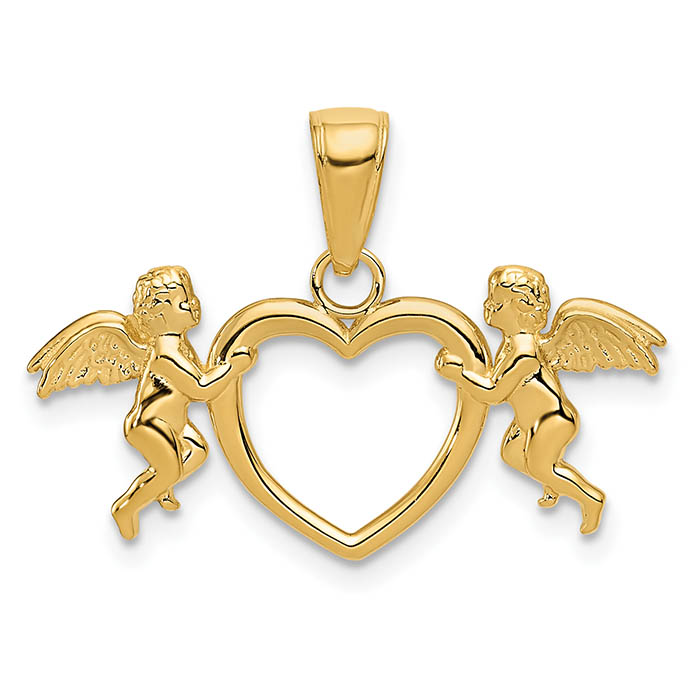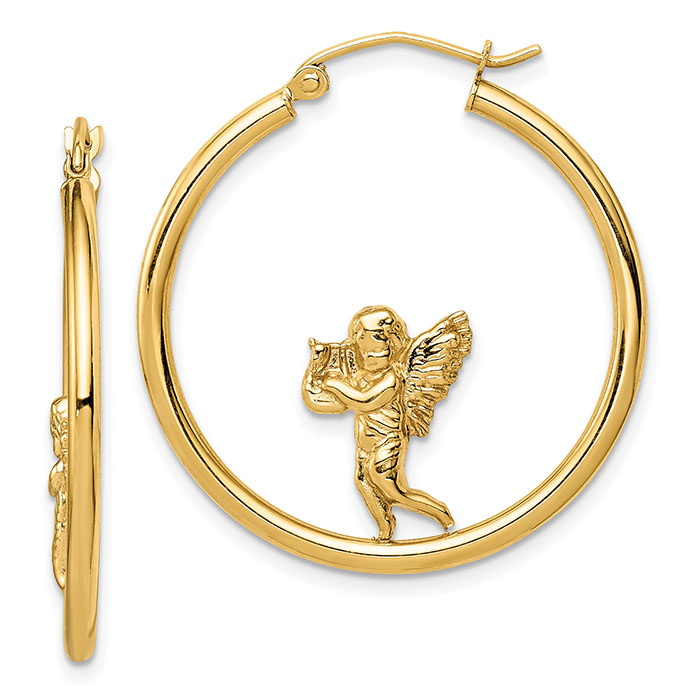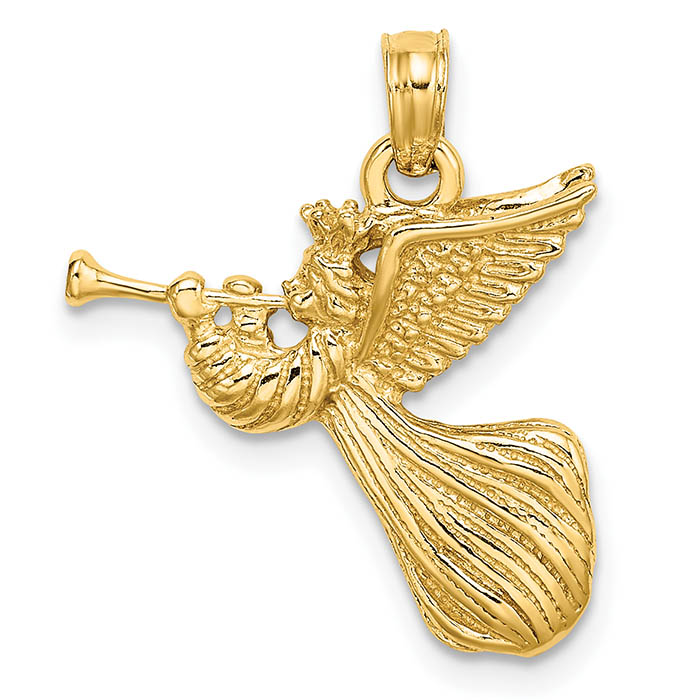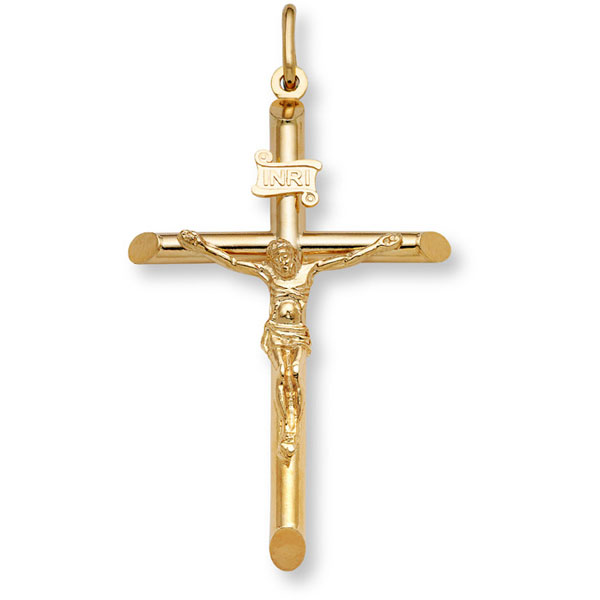Angels in the Bible
Humans have been fascinated by angels from the earliest times. Angels frequently interacted with the patriarchs (Genesis 16:7-11; 21:17; 22:10-18; 28:12) and throughout the Bible, mention is made of the reverential awe (sometimes too much so) given to angels (Judges 13; Luke 2:9-13; Colossians 2:18; Revelation 19:10). Today, there are people who do not care much one way or the other about God still find themselves fascinated by angels. One sees them in angel jewelry, decorations, and on clothing. But what are we actually told about angels in the Bible?
Angels in Heaven
One of the most dramatic visions of angels in the Bible are angels surrounding God’s throne as seen by the prophet Isaiah (Isaiah 6:1-3) in which angels surround the throne of God and constantly affirm His holiness. John also saw numerous visions of angels in heaven recorded in Revelation, probably the most famous account being where he wrote, “And I beheld, and I heard the voice of many angels round about the throne … and the number of them was ten thousand times ten thousand, and thousand of thousands; saying with a loud voice, Worthy is the Lamb that was slain to receive power, and riches, and wisdom, and strength, and honor, and glory, and blessing” (Revelation 5:11-12).
Angels on Earth
It is in this role that we are presented with what is arguably the most important role of angels in the Bible: carrying out the will of God on Earth. It was an angel who killed 185,000 Assyrians when the arrogant, blaspheming king Sennacherib came to besiege Jerusalem (Isaiah 37:36). Jesus said that, “The Son of Man shall send forth his angels, and they shall gather out of his kingdom all things that offend, and them which do iniquity” (Matthew 13:41). At the end of the world, Jesus said, “And he shall send his angels with a great sound of a trumpet, and they shall gather together his elect from the four winds, from one end of heaven to the other” (Matthew 24:31). And throughout Revelation, it was the angels who were responsible for visiting God’s judgment on the earth; the word “angel” appears more than 60 times in that book alone, many times meting out God’s judgment on Earth. Other times, they were appearing simply to announce God’s judgment on the Earth (Revelation 7:2).
Such angels are depicted in Apples of Gold Jewelry’s angel pendants collection, depicting both popular and biblical conceptions of angels in solid gold.
Angels as God’s Messengers
It is worth noting that in the Greek language in which the New Testament was originally written, the word “angel” simply means “messenger”, and it was applied to both God’s angels and human messengers. Paul said that the Galatians “received me as an angel of God” (Galatians 4:14). It is also possible that the “angel” to whom John wrote in Revelation to each of the seven churches (Revelation 2:1, 8, 12, 18, 3:1, 7, 14) was simply a messenger to whom he gave his letter to take to those churches.
However, the vast majority of times this word is used, it is certain that the text is referring to God’s angels, sent from the presence of God to either deliver His message or carry out His will on earth. It was “the angel of the Lord” that directed the evangelist Philip into the path of the Ethiopian eunuch (Acts 8:26) and an angel that appeared to the Roman centurion Cornelius, telling him to summon the apostle Peter (Acts 10:3). Most famously of all, it was angels who announced the birth of Jesus to some anonymous shepherds on a Judean hillside (Luke 20:10-13). This was after the angel Gabriel announced the birth of John the Baptist and Jesus (Luke 1) and appeared to Joseph to announce the same (Matthew 1:20-24). Later, the angel of the Lord would appear to Joseph ordering him to flee to Egypt to escape the wrath of Herod (Matthew 2:13) and later, to return (2:19).
In the Old Testament, it was an angel that appeared to Gideon (Judges 6:11-22), announced the birth of Samson to his parents (Judges 13). Later, God sent an angel to the prophet Elijah to refresh him (I Kings 19:5-7) much like they later did with Jesus after His temptation (Matthew 4:11; Mark 1:13).
Such angels are also depicted in Apples of Gold Jewelry’s angel earrings collection, displaying both popular and design inspirations from the Bible.
Guardian Angels
“The angel of the Lord,” wrote David in Psalm 34, “encampeth round about them that fear him, and delivereth them” (v. 7). Later in the psalms, in a passage infamously quoted by Satan when tempting Jesus (Matthew 4:6), the psalmist wrote, “For he shall give his angels charge over thee, to keep thee in all thy ways” (Psalms 91:11). The writer of Hebrews added, “Are they not all ministering spirits, sent forth to minister for them who shall be heirs of salvation?” (1:14).
It is in this role that angels seem to command their greatest—and possibly most misunderstood—fascination. The concept of a “guardian angel” has fascinated and comforted any number of people, such that cards and souvenirs abound featuring a guardian angel. When someone has a near-fatal experience, they may speak of how their “guardian angel” was watching over them. And this is not without biblical foundation, as angels in the Bible constantly appear as guardians in times of trouble. It was an angel who, as we already saw, dispatched and annihilated the mighty army of Sennacherib, the king of Assyria when he was attempting to besiege Jerusalem. Angels blinded the eyes of Lot’s neighbors to keep them from killing him (Genesis 19:11). It was an angel that shut the mouths of lions to prevent them from eating Daniel (Daniel 6:22). Finally, it was an angel that busted Peter out of prison on what was to be the eve of his execution (Acts 12:7-10).
Angels in Pop Culture
However, here is where the pop culture fascination with “guardian angels” falls apart. The fact is, guardian angels are not present for unbelievers. Note that every reference with which we began were only applied to those who “fear him” and the “heirs of salvation”. Psalm 91 is written about those who “say of the Lord, He is my refuge and my fortress” (v. 2). The fact is, for those who reject Christ, the angels have no interest in them, other than seeing to it that God’s will is carried out in their lives.
But for believers too, the concern of angels in their lives is also no guarantee of protection. Perhaps no one had more angelic attendance than Jesus did (Matthew 26:53), yet Jesus was arrested, beaten and crucified—because it was God’s will for Him. This was the folly of Satan quoting Psalm 91:11 to Jesus in daring Him to leap off the pinnacle of the temple; God’s angels are not a guarantee of protection against all harm; far from it! Rather, the presence of angels represents the assurance that God’s will is to be carried out in the world and in each individual life. For believers, ultimately, that means an eternity of protection and the absolute protection in this life that is found inside the will of God. As the saying goes, “You are immortal until God’s time for you comes.”
Angels Today
So today, even as our culture is often fixated on angels, to the expense of the reality that lies behind them that we see when we study angels in the Bible, reminding ourselves about God’s messengers that are working all around us nevertheless remains a reminder of God’s loving care over us and that for those of us who believe, it will one day be the angels who take us directly into the presence of God either in death (Luke 16:22) or at the end of the world (Matthew 24:31) when Jesus will return with a host of angels (Revelation 19:14), with the archangel shouting to announce His coming (I Thessalonians 4:16).
That is something worth reminding worth reminding ourselves of.
Category: Christian Jewelry, Jewelry in the Bible

